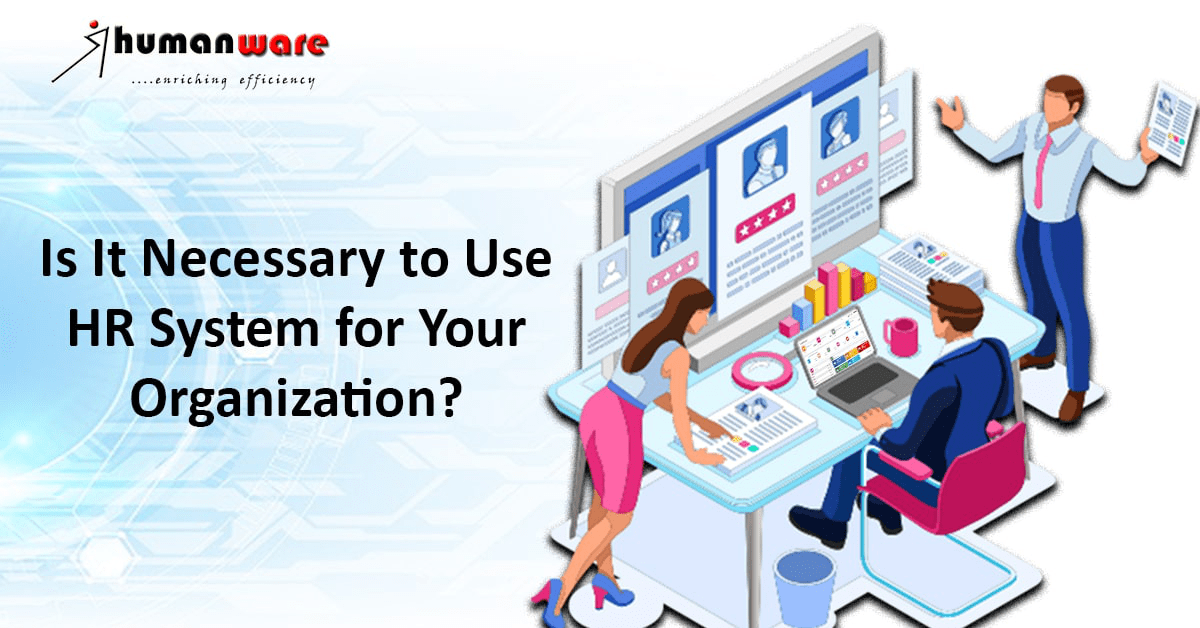
Is It Necessary to Use HR System for your Organization?
Before delving into the HR software platforms, let’s have HR software explained first. Also often referred to as Human Resources Information Systems (HRIS) and Human Resources Management Systems (HRMS), it’s a software built for streamlining and automating your Human Capital Management (HCM) processes in one database.
The purpose of Humanware HR software solutions come in various specialties for instance, administration, benefits, employee management, learning management, performance management, recruiting, talent management, training, and workforce management. Whether you’re a small business or a multinational company, nearly every organisation will benefit from using a specialist HR system.
To help, this blog outlines most significant benefits that come with choosing an integrated option:
1. It Saves you Time :
Having different techniques for different services can be confusing and difficult for your employees. In turn, this can help to HR having to field an increased volume of questions from employees about issues with these various systems – which can waste valuable time for everyone and slow down productivity. With an integrated system, you bring everything together – so employees only have to log in to one system to view key information (current training status, payroll data, leave dates etc) saving everyone a lot of time and difficulties.
2. It Provides you with A Single Set of Data :
With various systems in place, you are likely to replicate data leading to manual workarounds and unnecessary duplication. An integrated system, by contrast, provides you with a single set of up-to-date data, which enables information to flow through your system more freely – any changes or updates need to be made once and are then consistent for all areas. Again, there is no need for additional combination to sync data as changes occur across different systems. To give you a simple example, if an employee’s contract is terminated the necessary details are entered once and every relevant area this applies to is automatically updated, rather than the task needing to be duplicated across multiple systems.
3. It Increases Accuracy :
The fact that data only has to be entered into your system once has the total benefit of improving your data accuracy. With multiple systems, more people are required to input more data, which multiplies the chances of human error – and all the problems that come with it. An integrated system, while not completely removing the possibility of human error completely, does vastly reduce it through a simplified and much smaller data input requirement – giving you much greater confidence in the accuracy of your employee records.
4. It Dramatically Improves Reporting and Analytics :
One of the most common challenges faced by HR teams is the amount of effort required to pull together seemingly simple reports. The root cause is the quality of the data. With different systems, the collection, cleansing and aggregation of data is typically a manual process. It can take days to pull together reports using unwieldy spreadsheets and complicated formulas. Most integrated systems have reporting and analytics tools built-in, along with a set of accurate data to work with. Reports can, therefore, be generated with just a few clicks, so HR teams can spend more time on analysing data, identifying trends and taking action – rather than wasting countless hours messing around with spreadsheets.
5. It Makes Compliance Much Easier :
Regulatory demands on HR professionals are increasing, with the introduction of the General Data Protection Regulation (GDPR), the most obvious example. There are many trending things to be done, which just add to an already busy plate. Integrated HR systems help HR teams fulfil many of these new responsibilities, by reducing both the amount of effort required and the risk of error. They will robotize aspects of compliance processes and provide an audit trail of approval activities.